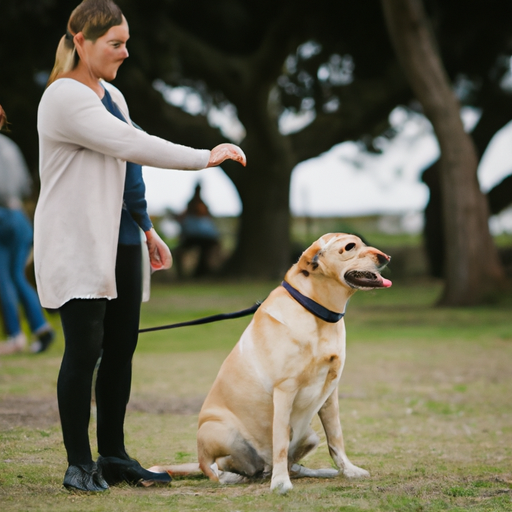A dog’s bark can serve various purposes, but when it becomes a habit, especially at people, it can be problematic. This guide will help you understand why your dogs bark and how you can help them become less reactive.
Understanding Why Dogs Bark
Dogs bark for a variety of reasons. Fear, territorial behavior, seeking attention, or even excitement can trigger barking. Understanding the cause of your dog’s barking is the first step to stop it.
- Fear: Dogs often bark at things that scare them. This could be strangers, loud noises, or unfamiliar environments.
- Territorial Behavior: Dogs are known for being protective of their space. If they perceive someone as an intruder, they might bark to ward them off.
- Attention-seeking: Sometimes, dogs bark because they want something. This could be food, playtime, or even just a little attention.
- Excitement: Dogs often bark when they’re excited. This could be when you come home, when it’s time for a walk, or when they see another dog.
Training Your Dog Not to Bark at People
Training your dog not to bark at people involves patience, consistency, and positive reinforcement. Here are some steps you can take:
- Start with Basic Commands: Teach your dog basic commands like ‘sit’, ‘stay’, and ‘quiet’. Reward them for following these commands to encourage positive behavior.
- Desensitize Your Dog: Gradually expose your dog to the trigger of their barking, while maintaining a distance that doesn’t cause them to react. Reward them for remaining calm.
- Distract Your Dog: If your dog starts to bark, distract them with a command or a toy. Reward them when they focus on you instead of the trigger.
- Practice Makes Perfect: The more you practice these techniques, the better your dog will get at controlling their barking.
The Role of Exercise in Curbing Barking
Dogs often bark out of boredom or pent-up energy. Regular exercise can help reduce this.
- Walks: Regular walks not only provide physical exercise but also mental stimulation.
- Playtime: Engaging games can help burn off excess energy and reduce barking.
- Training Sessions: Regular training sessions can keep your dog mentally stimulated and less likely to bark.
The Importance of Consistency
Consistency is key in any training routine. If you let your dog bark sometimes but not others, they will get confused. Make sure everyone in your household follows the same rules to avoid mixed messages.
The Role of Professional Help
If your dog’s barking persists despite your efforts, it might be time to seek professional help. A professional dog trainer or a behaviorist can help identify the root cause of the barking and provide customized solutions.
What Not to Do
While it’s important to know what to do, it’s equally important to understand what not to do.
- Never yell at your dog to quiet them. This might only excite them more.
- Don’t punish your dog for barking. This can lead to fear and anxiety, making the problem worse.
FAQ
Q: How long does it take to train a dog not to bark at people?
A: Training duration varies from dog to dog. Consistency and patience are key. It could take a few weeks or even a few months.
Q: Can certain dog breeds be more prone to barking?
A: Some breeds are more vocal than others. However, any breed can develop a barking habit.
Q: How do I know if my dog’s barking is a sign of a bigger problem?
A: If the barking persists despite training, or if it’s accompanied by other behavioral changes, it might indicate a bigger issue. Consult a vet or a professional trainer in such cases.
Remember, barking is a natural behavior for dogs. The goal isn’t to eliminate barking completely, but to help your dog understand when it’s appropriate and when it’s not. With patience and consistent training, you can help your dog become a well-behaved member of your family.



